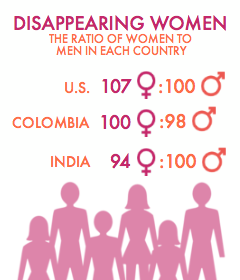
Geography: Global
Founded: 1969
Address:605 3rd Avenue
New York, NY 10158
About UNFPA
UNFPA, the United Nations Population Fund, is an international development agency that promotes the right of every woman, man and child to enjoy a life of health and equal opportunity. UNFPA supports countries in using population data for policies and programmes to reduce poverty and to ensure that every pregnancy is wanted, every birth is safe, every young person is free of HIV/AIDS, and every girl and woman is treated with dignity and respect.
UNFPA partners with governments, other agencies and civil society to advance UNFPA's mission. Two frameworks guide its efforts: the Programme of Action adopted at the 1994 International Conference on Population and Development and the Millennium Development Goals, eight targets to reduce extreme poverty by 2015. Since the date for achieving these goals and targets is fast approaching, work is being accelerated to analyze successes, to galvanize support and to redouble efforts.
The goals of UNFPA - achieving universal access to sexual and reproductive health (including family planning), promoting reproductive rights, reducing maternal mortality and accelerating progress on the ICPD agenda and MDG 5 - are inextricably linked. UNFPA also focuses on improving the lives of youths and women by advocating for human rights and gender equality and by promoting the understanding of population dynamics. Population dynamics, including growth rates, age structure, fertility and mortality and migration have an effect on every aspect of human, social and economic progress. And sexual and reproductive health and women's empowerment all powerfully affect and are influenced by population trends.
The importance of gender equality and women's empowerment to development progress is underscored by its inclusion as one of the Millennium Development Goals. In fact, gender equality drives all the MDGs and is intimately linked and connected to goals to improve maternal and newborn health and reduce the spread of HIV.
UNFPA's gender framework incorporates four strategies that address critical factors behind inequalities and rights violations: girls' education, women's economic empowerment, women's political participation and balancing reproductive and productive roles.
UNFPA also brings gender issues to wider attention and promotes legal and policy reforms and gender-sensitive data collection. It works to end gender-based violence, including traditional practices that harm women, such as child marriage and female genital mutilation/cutting as well as pre-natal sex selection. UNFPA also raises awareness of women's strengths, vulnerabilities and needs in a variety of situations and issues, such as humanitarian emergencies, climate change and migration. It recognizes the rights, perspectives and influences of men and boys and seeks to involve them in promoting gender equality and improving reproductive health.